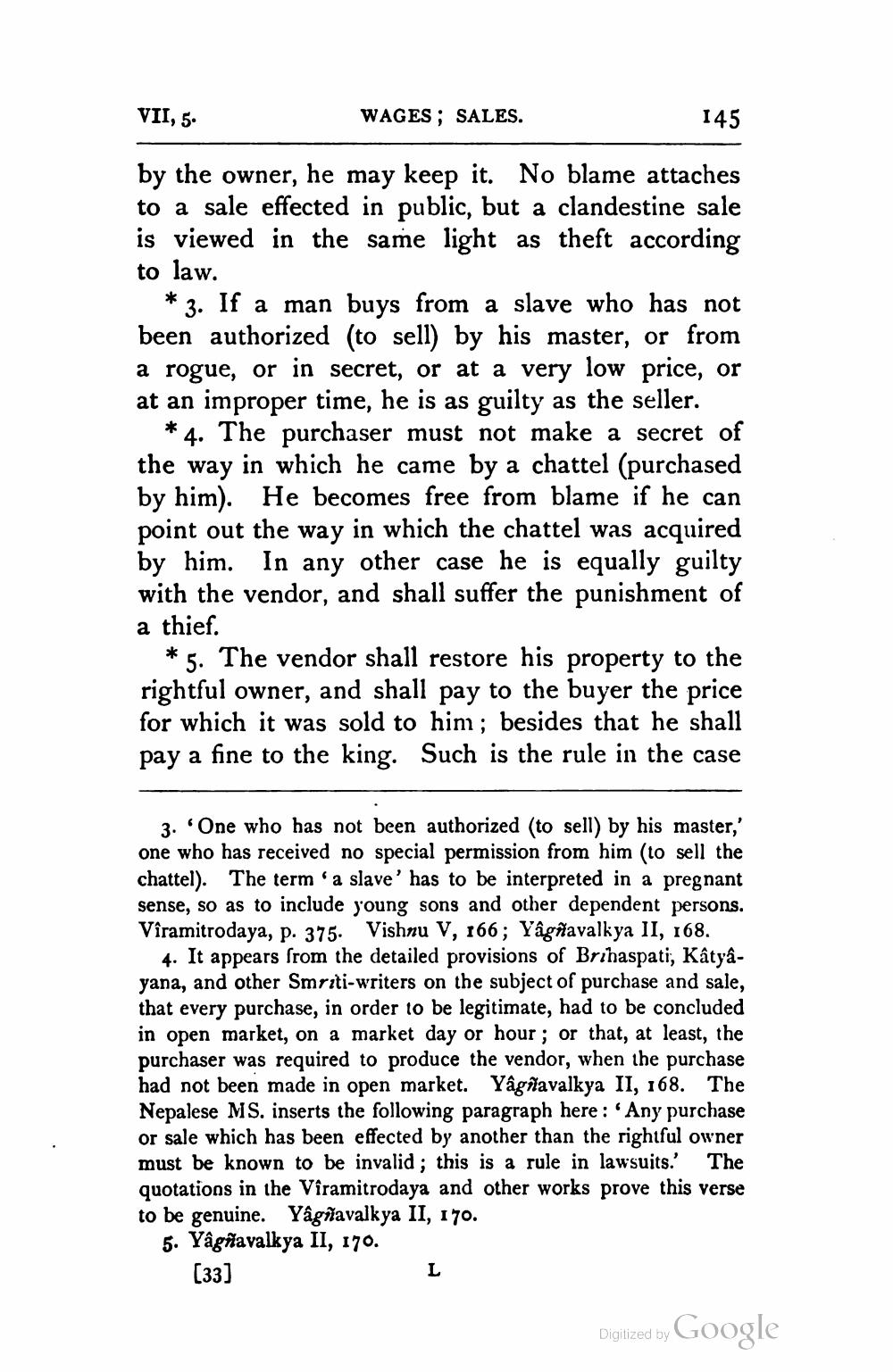________________
VII, 5.
WAGES; SALES.
145
by the owner, he may keep it. No blame attaches to a sale effected in public, but a clandestine sale is viewed in the same light as theft according to law.
* 3. If a man buys from a slave who has not been authorized (to sell) by his master, or from a rogue, or in secret, or at a very low price, or at an improper time, he is as guilty as the seller.
* 4. The purchaser must not make a secret of the way in which he came by a chattel (purchased by him). He becomes free from blame if he can point out the way in which the chattel was acquired by him. In any other case he is equally guilty with the vendor, and shall suffer the punishment of a thief.
*5. The vendor shall restore his property to the rightful owner, and shall pay to the buyer the price for which it was sold to him; besides that he shall pay a fine to the king. Such is the rule in the case
3. One who has not been authorized (to sell) by his master,' one who has received no special permission from him to sell the chattel). The term 'a slave' has to be interpreted in a pregnant sense, so as to include young sons and other dependent persons Vîramitrodaya, p. 375. Vishnu V, 166; Yagñavalkya II, 168.
4. It appears from the detailed provisions of Brihaspati, Kâtyayana, and other Smriti-writers on the subject of purchase and sale, that every purchase, in order to be legitimate, had to be concluded in open market, on a market day or hour; or that, at least, the purchaser was required to produce the vendor, when the purchase had not been made in open market. Yâgñavalkya II, 168. The Nepalese MS. inserts the following paragraph here: 'Any purchase or sale which has been effected by another than the rightful owner must be known to be invalid ; this is a rule in lawsuits. The quotations in the Viramitrodaya and other works prove this verse to be genuine. Yâgñavalkya II, 170. 5. Yagħavalkya II, 170.
[33]
Digitized by Google




